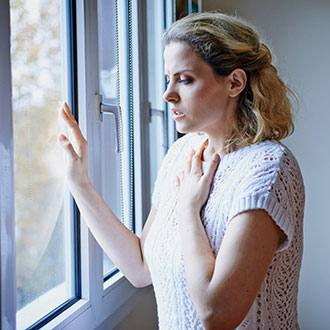GPs could prescribe budesonide inhalers as a Covid treatment ‘on a case-by-case basis’ although it is not ‘at this point in time’ being ‘recommended for routine use’, the Government has said.
The joint statement from the four UK health departments followed final findings from the PRINCIPLE trial into the use of the commonly-used asthma medication, published as a pre-print today.
It reported a three-day median benefit in self-reported recovery for patients with Covid in the community setting who received inhaled budesonide, although the impact on hospitalisation rates or mortality has not been established.
The Government, which funds the PRINCIPLE trial into primary care Covid treatments, said that as the evaluation is
ongoing ‘recommendations may change as more data become available’.
The Government statement said: ‘At this point in time, inhaled budesonide is not being recommended for routine use, but can be considered to be prescribed by healthcare professionals on a case-by-case basis using the information described in this Interim Position Statement and the interim results from the PRINCIPLE trial (pre-print). This is an off-label use of a licensed medicine, the meaning of which should be discussed with the patient.’
The study, which has not yet been peer-reviewed, involved 1,779 participants who had tested positive for Covid, 751 of whom were randomly assigned to receive inhaled budesonide at home. A further 1,028 patients were randomly assigned the usual standard of NHS care alone.
All participants were aged over 50 with ‘an underlying health condition that put them at more risk of serious Covid-19 illness’ or were over 65 years old, the University of Oxford researchers said.
Early results of the trial found that the estimated median time to self-reported recovery for inhaled budesonide was three days shorter compared to usual care, it added.
Initial data from the study, published on the pre-print server medRxiv, also revealed that 32% of those taking budesonide, compared to 22% in the usual care group, recovered within the first 14 days of starting the trial and subsequently remained well until 28 days.
Among participants who had completed all 28 days of the study by 25 March 2021, 8.5% in the budesonide group were hospitalised with coronavirus compared with 10.3% in the other group.
However, as Covid-19 cases and hospitalisations continue to drop, it is not yet ‘clear from this interim analysis whether budesonide reduces hospitalisations’, the researchers cautioned.
Joint chief investigator and South Wales GP Professor Chris Butler said: ‘[We have] found evidence that a relatively cheap, widely available drug with very few side effects helps people at higher risk of worse outcomes from Covid-19 recover quicker, stay better once they feel recovered, and improves their wellbeing.
‘We therefore anticipate that medical practitioners around the world caring for people with Covid-19 in the community may wish to consider this evidence when making treatment decisions.’
Professor Richard Hobbs, head of Oxford University’s Nuffield Department of Primary Care Health Sciences, added: ‘For the first time we have high-quality evidence of an effective treatment that can be rolled out across the community for people who are at most risk of developing more severe illness from Covid-19.’
He said: ‘Unlike other proven treatments, budesonide is effective as a treatment at home and during the early stages of the illness. This is a significant milestone for this pandemic and a major achievement for community-based research.’
In full: Covid patients who could be prescribed budesonide
Eligibility criteria
Patients are eligible to be considered for treatment with inhaled budesonide when all of the
following criteria are met:
• Patients with onset of symptoms1 of COVID-19 within the past 14 days, and symptoms are ongoing.
• COVID-19 confirmed by PCR test within the past 14 days.
• 65 years and over OR 50-64 years with a comorbidity consistent with a long-term health condition from the flu list2
Exclusion criteria
Budesonide should not be administered in the following circumstances:
• Known hypersensitivity to budesonide or other inhaled corticosteroids.
• Patient admitted to hospital with COVID-19 before onset of treatment with budesonide.
• Almost recovered (generally much improved and symptoms now mild or almost absent).
• Any known contraindication to inhaled corticosteroids (as per SmPC: patients with rare hereditary problems of galactose intolerance, the Lapp lactase deficiency or glucose-galactose malabsorption should not take this medicine. Lactose, the excipient in the product, contains small amount of milk proteins and can therefore cause allergic
reactions).
• Patient currently prescribed inhaled or systemic corticosteroids.
• Unable to use an inhaler (even with assistance or reasonable adjustments).
Dose
The PRINCIPLE trial used inhaled budesonide (Pulmicort Turbohaler® 400 micrograms), 800 micrograms twice daily for up to 14 days or until all doses of the inhaler are used (whichever comes first). Supplementary information for patients on the use of a budesonide inhaler is available here.
The following alternative devices for delivering budesonide may be considered:
- Pulmicort Turbohaler® 200 micrograms
- Budelin Novolizer® 200 micrograms
- Easyhaler Budesonide® 400 micrograms
- Easyhaler Budesonide® 200 micrograms
Healthcare professionals should consider whether the use of inhaled budesonide should be
continued if admission to hospital is required due to deteriorating symptoms of COVID-19.
Source: MHRA
Pulse July survey
Take our July 2025 survey to potentially win £1.000 worth of tokens












